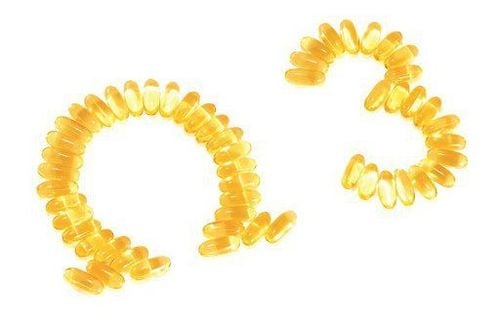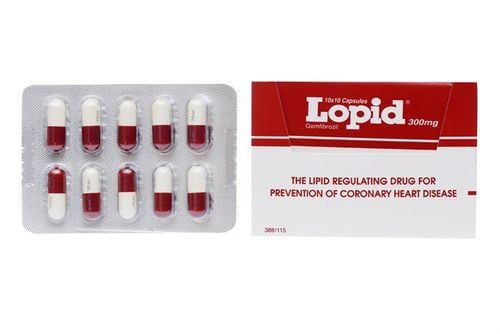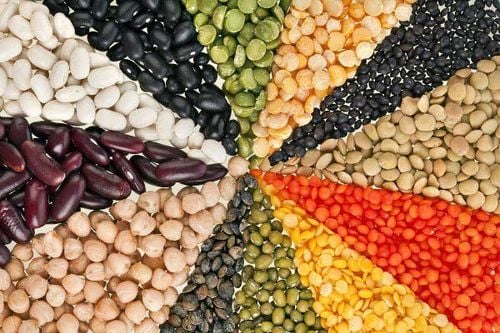This is an automatically translated article.
Nutritional needs for 4-year-old children need to be fully ensured in both quantity and quality to create a premise for children to develop healthy. In order to meet this, children's meals need to ensure full of necessary nutrient groups and change the daily diet for children to fully absorb nutrition.
1. Diet for 4-year-old children
Children's digestive system at this stage is still weak and prone to indigestion when eating too much. However, the digestive system is also gradually improving, so the choice of food is also more diverse than in the past. This is an important age in the formation of personality and nutritional habits. The principle of building nutritious meals for children at this stage should be correct and adequate, with varied foods and no diets.
One thing to keep in mind with children at this stage is that they love sweets very much. Because of the development of taste buds scattered throughout the surface of the tongue, the taste sensation in children will be stronger than in adults. The sweeteners very quickly quench the hunger of the child, making the child anorexic. Accordingly, children eating a lot of these foods will cause nutritional deficiencies in quality. Therefore, parents always pay attention to training children to have healthy eating habits to meet the right nutrients needed for the child's development.
Nutritional needs of 4-year-old children are as follows:
Energy needs: Children at this age expend more energy because they can walk and run. Energy needs are about 1400-1500 kcal/day. Protein requirements: 2.5 - 3 grams of protein/kg body weight/day (about 35 - 40 grams/day). Protein of animal origin accounts for about 50-60% of total protein. Lipid requirements: about 35 - 40% of energy from lipids. Need for vitamins and minerals: fat-soluble vitamins (Vitamins A, D, E, K), water-soluble vitamins (Vitamins C, B1, B2), calcium, zinc, iron, iodine.
2. Sample nutritional menu for 4-year-old children
The recommended nutritional menu for children is as follows:
Sample menu number 1
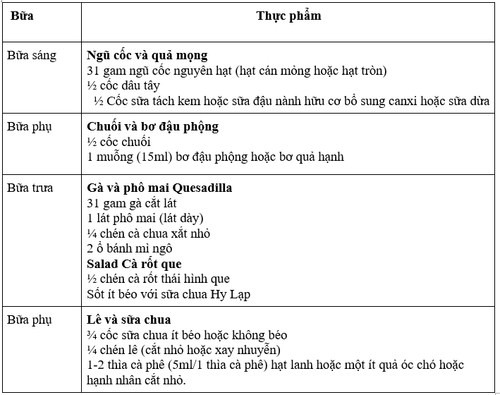
Thực đơn mẫu chi bé 4 tuổi
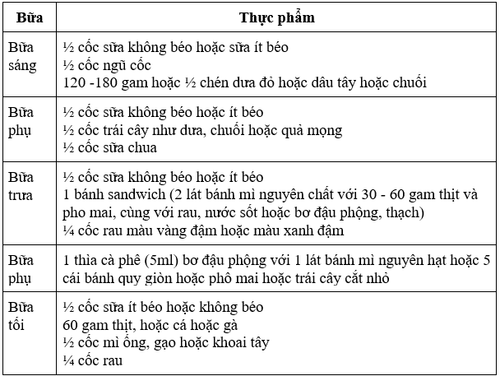
Thực đơn mẫu chi bé 4 tuổi
3. Some notes on the nutrition of 4-year-old children
In order for children to develop healthy and uniform, parents should note a few things as follows:
Provide healthy food for children's meals: When children eat a variety of foods, they will gain weight. with the amount of vitamins needed for growth. Healthy options including fresh fruits and vegetables, low-fat dairy products (yogurt, cheese) or milk alternatives, lean protein (beans, chicken, fish, tofu, eggs) and whole grains or bread. Feed your child in accordance with his or her portion size: Don't put pressure on your child to eat all of the food in his or her diet. Parents should encourage children to use a variety of foods, especially familiar with new foods. Schedule meal times appropriately and allow children to eat with the family. Do not use smart technology devices such as phones, televisions, ... during meals. Create a comfortable dining space for children to help increase their interest in meals. Limit processed foods (fast food) and sugary drinks. Sugary drinks can lead to tooth decay and unhealthy weight gain (obesity).
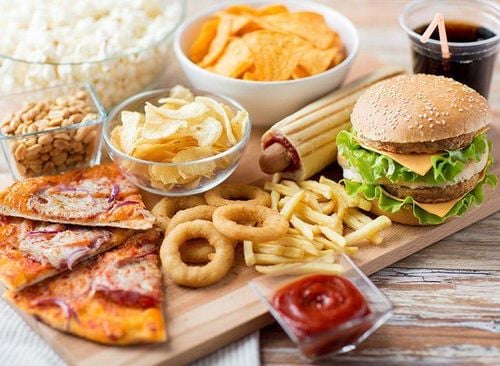
Hạn chế cho trẻ ăn các thức ăn nhanh
The best drinks for babies are water and milk. Milk provides calcium and vitamin D to help build strong bones. Whole fruit is better than fruit juice including 100% fruit juice. Because whole fruit not only provides an abundant amount of vitamins, but it also provides a healthy fiber content for children.
For children to be healthy and develop well, it is necessary to have a nutritious diet in terms of quantity and quality balance. If children are not provided with adequate and balanced nutrients, it will lead to diseases of excess or lack of nutrients, which adversely affect the comprehensive development of children in terms of physical, mental and motor skills.
Children who do not eat properly are at risk of micro-mineral deficiency causing anorexia, growth retardation, malabsorption,... If they notice the above signs, parents should supplement their children with products. The supplement contains lysine, essential micro-minerals and vitamins such as zinc, chromium, selenium, and B vitamins to help fully meet the nutritional needs of children. At the same time, these essential vitamins also support digestion, enhance nutrient absorption, help improve anorexia, and help children eat well.
Parents can learn more:
Signs of zinc deficiency in children
Micronutrient deficiency and failure to gain weight in children
Please regularly visit Vinmec.com website and update useful information to take care of your child. Take care of the baby and the whole family.





